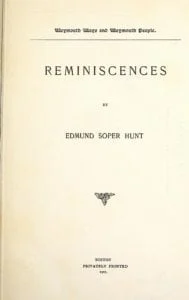Biographical Sketch of William Breck
WILLIAM BRECK, son of Henry Breck, was born Dec. 17, 1826. At the age of fourteen, he removed with his father to Cornish. At eighteen, he went to Claremont, and was Assistant Postmaster for two years ; at the expiration of which time, on account of ill health, he returned to his father’s roof at Cornish. At twenty-two, he went into trade with his brother John at Cornish, and continued there four years ; at which time, laboring under a severe attack of asthma, he went to California, where he was in active business eight years, when, having regained his … Read more




